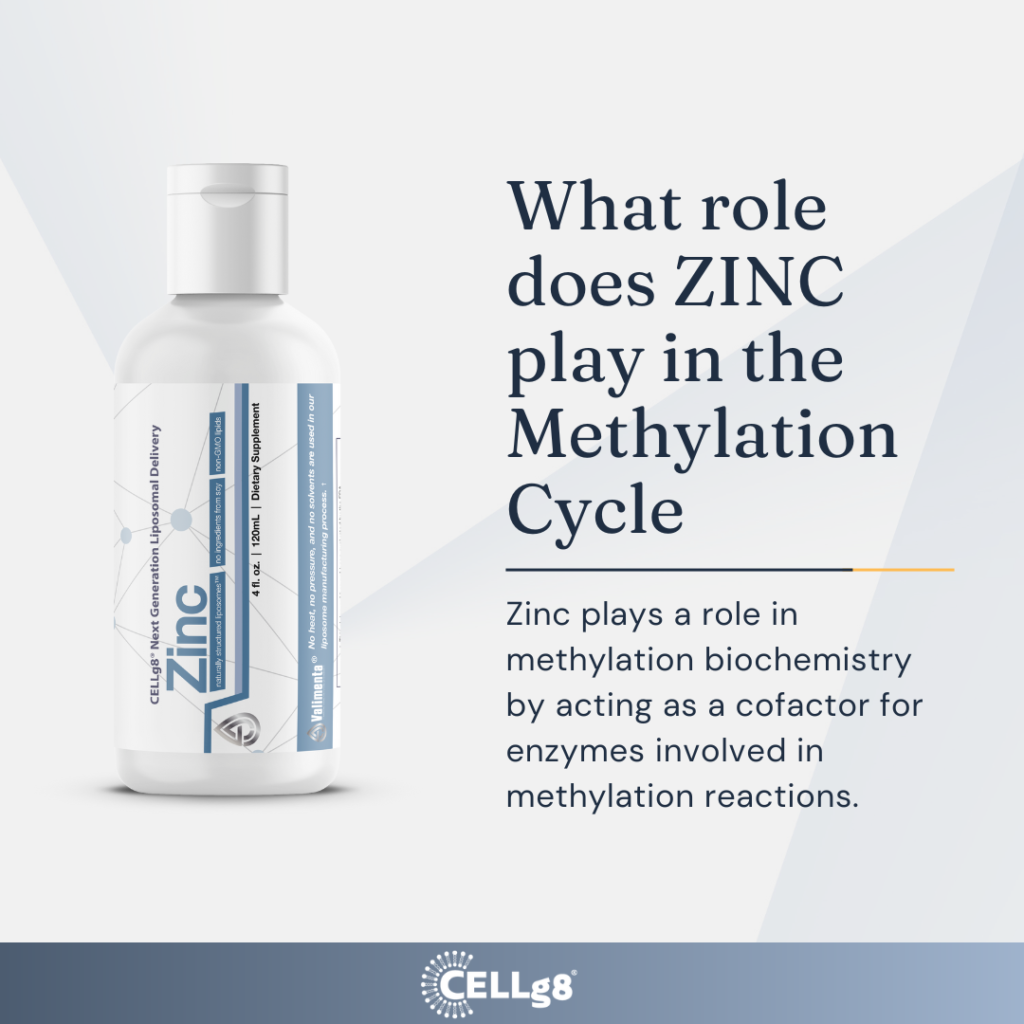Zinc plays a role in methylation biochemistry by acting as a cofactor for enzymes involved in methylation reactions.
Zinc is a cofactor for several enzymes involved in methylation, such as the enzymes that catalyze the formation of S-adenosylmethionine (SAM), the main methyl donor in the cell, and the enzymes that catalyze the conversion of homocysteine to methionine, which is also an important step in the methylation cycle.
Additionally, zinc is also required for the activity of enzymes that catalyze the methylation and demethylation of DNA, such as DNMTs (DNA methyltransferases) and TET enzymes. These enzymes are responsible for the addition or removal of methyl groups from DNA, which can affect the expression of genes.
Zinc deficiency can lead to the disruption of methylation reactions, leading to changes in the expression of genes that are involved in proper genetic expression.
References
- https://www.ncbi.nlm.nih.gov/pmc/articles/PMC7354546/
- https://www.ncbi.nlm.nih.gov/pmc/articles/PMC6879467/
- https://www.ncbi.nlm.nih.gov/pmc/articles/PMC7163664/
- https://www.ncbi.nlm.nih.gov/pmc/articles/PMC4997693/


